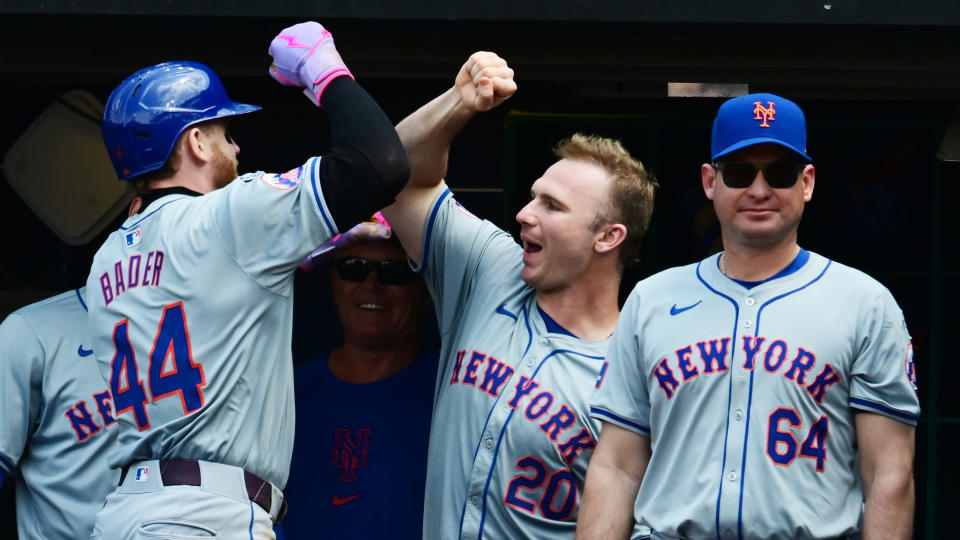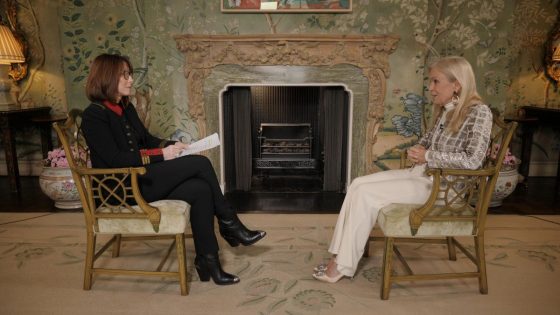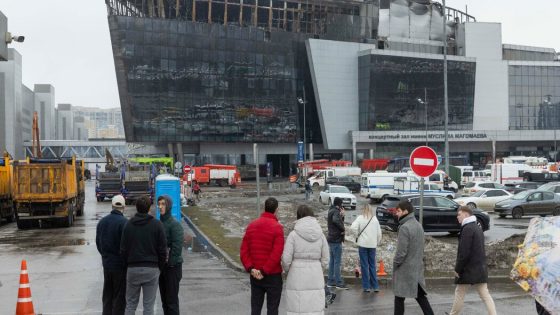Gleyber Torres, midway through his final season under contract with the Yankees, sits in the home dugout in the Bronx on a quiet afternoon, gazing out at the field. He is remembering the kid who first arrived, and the man who took him in.
“The day the Yankees got me from the Cubs [in the 2016 trade for closer Aroldis Chapman], he received me on the minor league side,” Torres says of Carlos Mendoza, the longtime Yankees coach who is now a rookie Mets manager preparing for his first subway series. “I was really nervous.”
Mendoza, during his long tenures in player development for the Yankees and then as Aaron Boone’s bench coach, assumed an almost parental role with Torres, a fellow native of Venezuela. Torres’ Yankees career, while full of highlights and All-Star appearances, has not always been clean or aesthetically pleasing.
Torres knows this. His style of play presents as casual, which obscures what Boone passionately defends as his “care factor.” He has made mistakes of attention and hustle. In long and often tense meetings over many years, Mendoza and Boone — often with Mendoza taking the lead — rode Torres hard.
And Torres is profoundly grateful for it. He does in fact have a strong care factor, and has always wanted to grow and improve.
“He was always the guy, when I did bad things, he went hard with me,” Torres says. “It was good. Maybe in the moment, someone can tell you something that you don’t like to hear. But that’s the best thing for a culture.”
This is not a simple tale of a coach helping a player, and the player sailing to glory because of it. Torres is enduring a disappointing walk year, largely failing to make a case that the Yankees should retain him. But truly impactful coaches help their players evolve as people, not just athletes.

“From the first day I came to the organization, Mendy helped me with everything,” Torres says.
“He helped me to get mature quicker. He was the infield coordinator. Then the first couple years [in the big leagues], if I didn’t run hard on the bases, or things like that, he would go straight to me. ‘Hey, you have to do the little things. You have to be a professional. If you get mad because you fail in one at-bat, you have to be a professional.'”
Contemporary coaching requires a delicate management of egos and sensitivities. Tough love is not always the most effective strategy. But for Mendoza and Torres, that tone clicked.
“He doesn’t care who I am,” said Torres, meaning that he was a top prospect, then an All-Star. “If he had the right answer for me, he would always come straight to me. And I love it. If I do bad, just tell me. That’s the only way I can be better and fix it for later.”
As a Venezuelan, Torres is also aware of Mendoza’s broader significance as just the second person from that country to hold the position with an MLB team on a non-interim basis. Only Ozzie Guillen with the Chicago White Sox and Miami Marlins precedes him.
“Yeah, for him to be a big league manager is huge,” Torres said. “I know he can be a great big league manager. I think with the Mets, he’s doing a great job. I don’t care how the Mets are playing. I just know how he is as a manager and as a person. I don’t think any players on the Mets have a problem with him, because I know he’s a great person.”
Torres pounds a fist in his glove, stands, and gets ready to trot out to the field to get extra work in. He is still writing the story that Mendoza helped him begin, hoping for an ending that is better than the present chapter.
“I’m looking forward to seeing him and talking to him [on Tuesday at Citi Field],” he says. “I feel so happy that he got the job.”
Source Agencies


